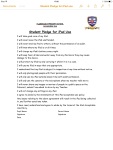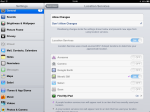This has been manifesting for years; generations. Every society in history has seen the class with the perceived least make some attempt to aggressively assert what power they have over those that they judge to be oppressing them. Not all of those with the least will seek to assert themselves in this way. To the majority of those within the society, myself included, the actions are abhorrent and without obvious justification. But that alone does not prevent the actions. It does not remove the perceived injustices or wipe away the cloud of disaffection and disengagement from their communities, whether we believe them to be real or no.
Expensively educated politicians pontificating that young people should be grateful for what they have, will not work. Newspaper editors deriding people who have shown a blatant disregard for basic human qualities, as scum and rats, will not work. Mocking an inability to communicate as we see fit, ignoring divided families, drug and alcohol addictions, gang intimidation, simple greed and chaotic circumstances, will not work.
The trigger was the police shooting of an (alleged) armed suspect, Mark Duggan. This has become almost irrelevant as hundreds of people across a range of cities throughout the country have taken advantage of weaknesses in the law, fears and suspicion within communities and the security of a mob and its mentality, to make their own personal short-term gains without thought for the future ramifications.
Is this inability to look beyond the immediacy of our own lives a national disease? Or even a global one? Is this selfishness ingrained to the point where a £10 donation to http://bit.ly/qtI39T allays our misgivings over starving humans in Africa? Debate continues to rage, and inaction continues to fester, over the ravaging of the planet and it’s natural resources, that could leave future generations at the greater mercy of disaster and conflict. Yet, still nothing is done.
Ultimately, as a society, we have only ourselves to blame. We knew there was an underclass of people, for whom the decencies by which we live meant little or nothing. Instead of enabling educators to engage more and provide hope and aspiration, it is made more difficult. We test, rush, isolate and blame. Instead of creating role-models to aspire to through the media and within our own communities, we promote narcissism, greed and the separation of effort, dedication and discipline from success.
There is no excuse for the behaviour witnessed. There is hope in the decency shown to individuals and communities as a whole and the way in which, even in the face of utter wickedness, some people still find the ability to show inspirational humanity http://bbc.in/rhDy4s
As a society, and for the sake of our future generations, we must find the solutions.
Strong leadership in all walks of life requires many characteristics, not least the ability to plan and prepare for the future. Too often, short-term popular gains are tolerated or encouraged and this concept has manifested itself throughout society with the instant 15 minute-fame of celebrity culture and access to media that allows one and all to publicly express themselves, to potentially millions of people. It is possible to achieve this with little or no effort or application and we see examples of this everyday to varying degrees of success.
On a global scale we have been subjected to the ramifications of the economic fall-out of borrowing more than we could afford. Governments make decisions based upon their terms of office and their electoral viability. Again, a short-term gain masks an inability or unwillingness to make decisions that may not yield their outcomes for many years. Even the measures of austerity that have been introduced in recent months, which are obviously unpopular in the extreme, have only come about in the face of a catastrophic ‘other reality’ that we would have faced with little or no action. These measures aren’t the preparations of well-laid plans. This isn’t through careful thought and reasoning as to the effects on people and communities in 30 years time. This is attempting to shut the door even as the hooves are throwing mud in our faces.
The point?
In April 2010, prior to the General Election, Nick Clegg predicted riots if the Conservatives were elected, as they would have no overwhelming majority and would be faced with difficult and unpopular decisions to make http://bit.ly/ncQ9xH
How prescient; but what contingencies were subsequently put in place?
To put a blunter edge on it, a member of the current government, partly through political point-scoring, saw trouble ahead and yet nothing appeared to be done. Cuts were made, jobs were lost, homes were repossessed. Yet, expenses were fiddled, bonuses were paid, wars were fought and the media was allowed to run amok. An already divided society (by race, class and opportunity) was given no means of reparation; no ability to heal rifts other than political phrasing (Big Society!) and the assertion that if you wanted to fix it you had to do it yourself.
These people cannot be cut adrift. For David Cameron to deem elements of our country ‘sick’ reflects on him as a leader and on those who had the ability to influence and do something good over the last 50 years. If people’s values are warped or at odds with the beliefs of the majority then society must take responsibility for the consequences. Brushes and brooms are too little and, for some, too late.











